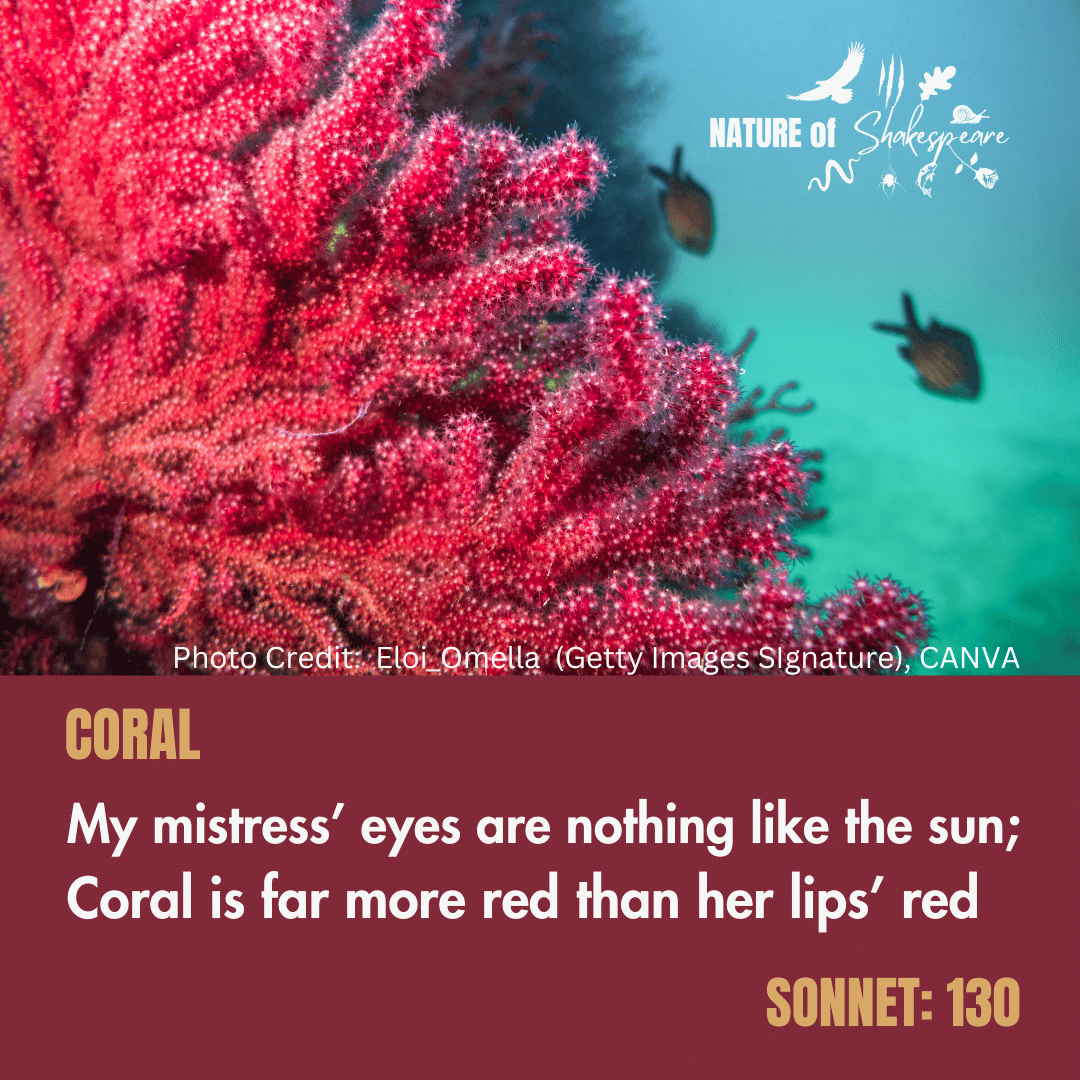CORAL
22nd April 2024
Photo Credit: Eloi_Omella (Getty Images Signature), CANVA
QUOTATION
My mistress’ eyes are nothing like the sun';
Coral is far more red than her lips’ red;
If snow be white then her breasts be dun;
…
And yet, by heaven, I think my love as rare
As any she belied with false compare.
SONNET 130
CORAL (Worldwide around 800 species of hard, reef-forming corals, including Red Coral (Corallium rubrum) above.)
Coral is compared with women’s lips in four different Shakespearean works, Rape of Lucrece, Sonnets, Taming of the Shrew, and Venus and Adonis. In The Tempest Ariel sings that a drowned sailor ‘full fathom five thy father lies of his bones are coral made.’
Red Coral (Corallium rubrm) has been a valued gemstone from many centuries and the species is found in the Mediterranean and in the Far East.
Corals are simple marine animals some of which live in colonies and are reef-forming. There are also soft Corals, often with a feather-like appearance. Corals are distributed around the world and there are warm water and cold water Corals. There are around 500 Coral species in Europe, with 200 species in the Mediterranean. The only reef-forming Coral in the UK, is a cold-water Coral (Lophelia pertusa) which lives in Scotland from a depth of 150 to 400 meters. These colonies range from 5 to 4000 years old and support a wide range of other biodiversity.
Corals are particularly sensitive to changes in ocean temperature, acidity and light levels and there have been well-documented bleaching events which have threatened or destroyed tropical Corals on the Great Barrier Reef in Australia. There are debates around the ethical sourcing of Corals for the gemstone industry.
More Information
Folger Shakespeare: Search Shakespeare’s Works
The Gemmological Association of Great Britain: The ethics of coral jewellery and sourcing for gemmologists.
International Coral Reef Initiative (ICRI): What are corals?
Oceana: Mediterranean Corals
Nature Scot: Cold Water Coral Reefs in Scotland
